 “Cheers to a new year and another chance for us to get it right.” –Oprah Winfrey
“Cheers to a new year and another chance for us to get it right.” –Oprah Winfrey
The last remaining months of the year are filled with family, friends, and food– yes, with the holidays comes a full spread of delicious eats and treats that you’ve likely been anticipating all year long. Though you’re surely excited to indulge in all the foods, drinks, and desserts you love while you celebrate the holidays, it’s important to prioritize your oral health during this time as well. So here are five dental tips to bear in mind this holiday season to keep your teeth and gums healthy and happy.
Even though the holidays can be a major disruption to our everyday schedules, it’s important to stick to your regular routine as it pertains to oral health. Make sure you continue to brush at least twice a day with fluoride toothpaste, and that you floss at least once per day too!
Of course, the end of the year is easily the busiest of times, but that isn’t reason enough to blow off your regular dental visits. Keep your teeth healthy and cavity free, and your gums in ship shape by keeping those always-important dental check ups and cleanings.
Drinking water has a slew of health benefits, but is especially important during the holiday season. This busy time of year often has us running ragged, and staying hydrated can help boost our immune systems, keep our skin looking its best, and help keep your teeth and gums healthy. Water washes away food debris and bacteria, and often has fluoride in it to help strengthen teeth while you drink it.

It’s easy during this time of year at holiday parties and family gatherings to eat a little here and there, and graze on the snacks and treats abounding. That said, grazing is not great for your teeth and gums. When you eat, your body produces an acid that aids in the breakdown of food, and that acid is not ideal for tooth health. This is why it’s a good idea for meal times to have distinct beginnings and ends to allow for your teeth to get a break from this process. It’s also a good idea to try to brush or rinse after eating whenever possible.
Another pro tip, especially during the holiday season, is to keep some dental floss in your bag or pocket. Not only is it a great idea to pop into the bathroom for a quick floss after meals, but you’ll also be totally prepared if you have an unfortunate spinach dip situation, or something else stuck in your teeth when you’re trying to socialize at the company Christmas party.
These are small and simple ways you can prioritize your oral health during this usually-hectic time of year. Of course, if you have any issues or concerns, contact our team at Tedford Family Dentistry. We’re always here to help! Cheers to the most wonderful time of the year, and to taking the best possible care of our holiday smiles no matter what the calendar brings!

Cavities aren’t ideal, but they are common. According to the CDC, about 20% of children ages five to 11 have at least one, untreated decaying tooth or cavity. Are you wondering what to do if your kid has a cavity? Keep calm, and call your Chattanooga pediatric dentist. When it comes to cavities, the worst thing you can do is nothing. You don’t want to leave a cavity untreated or unfilled, because it will progressively get worse, and cause pain and more problems if you don’t address the issue early on.
Several factors can make children susceptible to developing cavities including poor dental hygiene, improper diet, lack of dental care, and even genetics. Though a lack of regular brushing and flossing is often the culprit in the presence of dental caries, it’s not always the problem. Some people are just more genetically predisposed to tooth decay than others. That said, it’s important to teach your children to brush regularly and do what they can to prevent tooth decay.
There are several warning signs that your child may be developing a cavity, and when you notice them, it’s best to make an appointment with your pediatric dentist straight away. The earliest sign of developing tooth decay is the formation of chalky, white spots on the tooth due to calcium loss and the presence of plaque. As the cavity begins to form, the area will become light brown, and as the spots deepen, they will darken in color.
Symptoms of a cavity often include:
If your child does develop a dental cavity, your Chattanooga pediatric dentist will present you with the treatment options that make the most sense for your child. Treatment will depend on the size and location of the cavity, as well as whether it’s in a baby tooth or a permanent one.
Dental Filling Types:
No one wants their child to have to deal with the discomfort or the aftermath of having dental cavities, but they are very common and very treatable particularly when caught early. Still, there are steps you can take to help reduce the risk of cavities for your children including:

Dental visits can be stress inducing, for patients of all ages, but what do you do when your child is outright afraid of going? There are some things you can do to help ease them into these situations with confidence. Here are 5 tips to get your kids comfortable with dental appointments Chattanooga, and we hope you’ll give them a shot.
Start em young. One great way to ensure your child is totally comfortable with dental appointments is to follow the recommendations of the ADA, and start taking your child to the dentist around the age of 6 months. As soon as your baby starts getting teeth, it’s time to start taking care of them. Early exposure to dental appointments can help create a comfort level with that type of care with your child. Treat it like the routing occurrence it is, and your child will likely follow suit.
Kids pick up on energy. Don’t forget this. If you’re stressed, they feel it. If you’re anxious, they feel it. Lead by example, and take great care of your own teeth at home. When you have dental appointments, make sure your child sees you going into them with confidence. If you have had bad experiences with dentists in the past, keep that under your hat. Your attitude about the whole thing will influence your child more than you might realize.
Before your child’s dental appointment, have a trial run at home. Do a little role playing, and make it fun. Your little one might gain some comfort from approaching things this way, and it also provides an opportunity for your child to ask any questions that may come up about the dental appointment and what to expect.
Don’t overwhelm your child with too much information or too many details, but talking about the upcoming dental appointment can really help ease any worries. Talk about how important it is to take great care of your teeth and gums, and explain that the dentist and his staff are going to brush their teeth just like you do at home to make sure they are clean and healthy. Avoid words like scary, pain, and shot, because those will likely just frighten your child. Using neutral language will soothe your child, and create a feeling of comfort and security.
Another important factor in instilling confidence for your child regarding dental appointments Chattanooga, is to find the right pediatric dentist. At Tedford Family Dentistry, we work to create an environment where children can feel comfortable. We understand how important it is for kids to feel confident about coming into the office for cleanings and other procedures, and we strive to create a sense of security and comfort with every office interaction.
Some dentists and their staff members have specialized training when it comes to providing pediatric dental care. The key is working with a team that invests time in building rapport and trust with your child, in an environment designed for treating kids. Our team at Tedford understands that this goes a long way.
If you’re looking for a pediatric dentist in Chattanooga, contact our team today. We’d love to take care of your little ones and help steer them toward lifelong oral health.
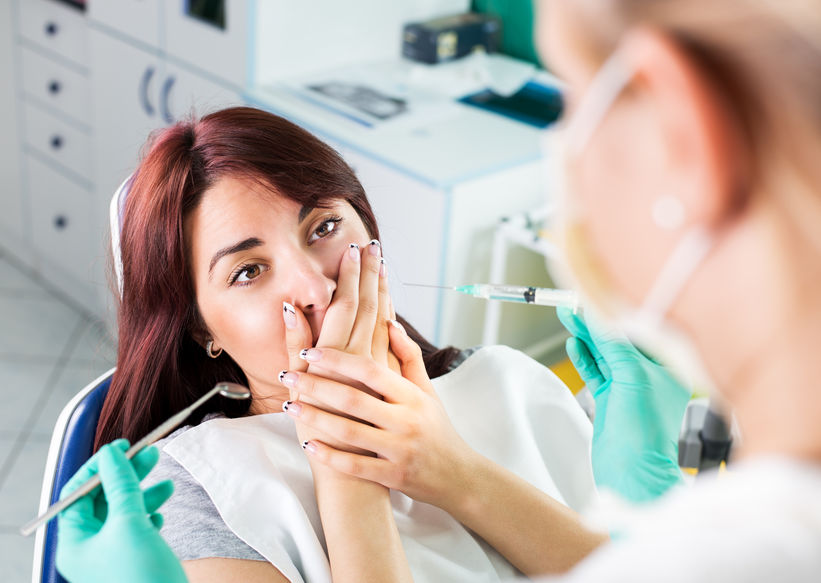
Does the thought of stepping into a dental office cause you immediate waves of anxiety? If so you’re not alone by any stretch. Many people deal with a very real fear of the dentist that can stem from all sorts of things. Some people deal with fear of injections or pain in general, others may feel embarrassment associated with the state of their teeth, and others still have suffered through negative dental experiences in the past that cause dental anxiety. Some people struggle with anxiety so severe that it keeps them from seeing a dentist regularly which only exacerbates the issues.
So how do you overcome this dental anxiety or fear of the dentist? There are lots of things you can do, but we think the number one line of defense should be to find a Chattanooga dentist who is just right for you. When you take the time to find a dentist who is able to make you feel comfortable when you’re in his or her care, you’ll be surprised at how much of your dental anxiety or fear will melt away.
Lots of factors can come into play when it comes to your comfort level at the dentist’s office. The atmosphere, the support staff, and the overall feel of the practice can go a long way in helping to ensure your comfort. It also helps to find a dentist who you trust who does great work, has experienced assistants, and who takes the time to discuss things with you to ease your worries about any necessary treatments or procedures.
Another way to combat dental anxiety is to practice relaxation techniques to help actively calm your mind and body. Deep breathing is a great place to start, as it is instrumental in relaxing tense muscles. Focusing your mind on your breath is also a great way to meditate and center yourself. Counting your breaths can serve as a great source of distraction while you’re undergoing dental procedures that have you stressed, plus this mindful breathing practice also helps to lower heart rate. You can also try systematically relaxing all the muscles in your body from head to toe, starting with the face and neck, and then the shoulders and so on.
Some dentists will use nitrous oxide, or laughing gas, to help relax patients who suffer from dental anxiety. Many patients find that the use of laughing gas is enough to quell their fears surrounding dental experiences. Talk with your Chattanooga dentist about this option if you are feeling extra anxious about your dental visit.
Some dental procedures that are more involved may require anesthesia, in which case your provider will discuss with you the options available. One option that’s sometimes available is conscious sedation. This type of anesthesia involves the use of drugs that depress the central nervous system allowing for the dental procedure to be carried out while the patient is still conscious and able to communicate with the dental staff during the visit. Different levels of sedation through anesthesia are often available during more invasive dental procedures.
No matter how you address your fear of the dentist or dental anxiety, be sure it doesn’t get so overwhelming that it keeps you from your regularly scheduled visits. Skipping out on cleanings and dental exams can lead to dental problems that are unpleasant and costly to address, and those experiences will only contribute to any negative feelings you may have about seeking dental work. If you are looking for an experienced and caring dental staff in the Chattanooga area, contact our team at Tedford Family Dentistry. We work hard to create an environment in which our patients can feel safe and comfortable while receiving the quality dental care they deserve.
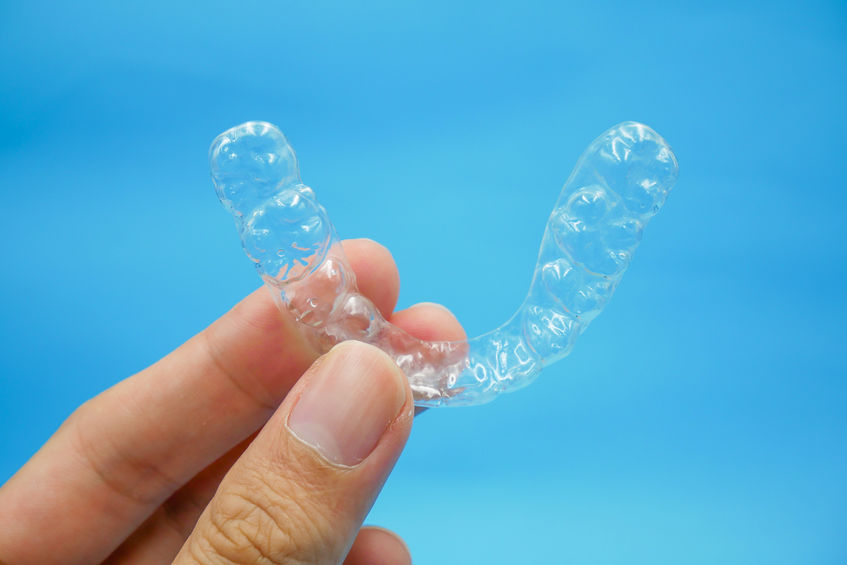
If you’re a stress grinder or tend to clench your teeth and jaw at night, you may want to explore the option of a dental night guard with your Chattanooga dentist. Teeth clenching, also known as bruxism, can result in a lot of discomfort and serious damage to your teeth over time. Grinding and clenching can cause jaw pain, jaw dysfunction, ongoing fatigue, and even teeth breakage due to the constant pressure.
If any of this is sounding familiar, chat with your dentist about dental night guard options that can help protect your teeth while you sleep. Even though wearing a night guard takes some getting used to, and can feel uncomfortable at first, the pros far outweigh the cons. Here are what we consider the top three benefits of wearing a dental night guard.
The last thing you want to deal with is broken teeth. They are painful and expensive to fix. A dental night guard protects your teeth from damage by acting as a cushion, a barrier of sorts, while you clench or grind your teeth. This helps prevent chipping, worn-down teeth, and breakage.
Clenching one’s teeth throughout the night puts a lot of stress on the jaw. As such, many people who clench their teeth at night will experience some level of jaw pain, which can actually lead to ongoing headaches and even migraines in more severe cases. Wearing a dental night guard can help minimize the effects of clenching and grinding.
A lot of people who clench their teeth during the night wake themselves up doing so. By this token, wearing a night guard will help them get a better night’s sleep. The dental night guard takes the brunt of the force associated with clenching and grinding, allowing the muscles of the jaw and face to relax more during sleep.
If you think you could benefit from wearing a dental night guard, chat with your Chattanooga dentist at Tedford Family Dentistry. We’d love to help you find the right solution for your bruxism, grinding, or clenching. Your teeth deserve a break, and you deserve peaceful sleep.
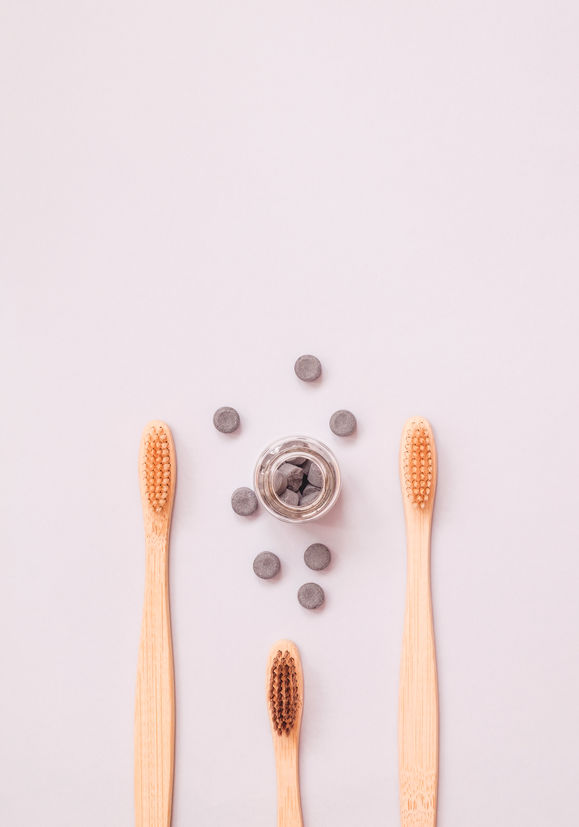
Dental hygiene is critical, but sometimes gets tossed to the back burner if we’re running late, tired, or just don’t feel like facing the dentist for that much-needed check up. Here’s the thing though, the teeth you have are the only ones you’ll ever have, so taking great care of them is imperative. That said, if you need to rally with some new, fun, dental care products to ramp up your oral health game, we’ve got some suggestions for products you should check out. In the meantime, schedule an appointment with our team at Tedford Family Dentistry, because when it comes to oral health Chattanooga, we’ve got your back all the way.
You have likely tried electric toothbrushes before, but the technology going into them is greater and more impressive than ever before. Switching from a regular toothbrush to a sleek, electric one with a spinning head can serve to motivate you to brush more frequently, and will help you be more effective in the process. We love the Oral-B 6000 SmartSeries Electric Toothbrush.
Say goodbye to replacing batteries, as this tool from Oral-B is rechargeable. More than that, this toothbrush actually features bluetooth connectivity so you can pair it to your smartphone for real-time feedback about how well you’re doing on the toothbrushing front. This powerful tool can remove up to 300% more plaque along the gumline than a manual toothbrush can. How’s that for upping your oral health game? Read more about this toothbrush on the Oral-B site.
Another way to reimagine your approach to oral health care at home is by using toothpaste tablets. Totally hygienic, and generally tidier than tube toothpaste, toothpaste tablets are easy to use, and perform just like regular toothpaste when it comes to cleaning teeth. One of the great features of using tablets is they prevent cross-contamination, which is particularly helpful when it comes to the spread of germs. Other benefits to these tiny tablets include easy storage and ease of use for travel. They also result in less waste, and often feature recyclable packaging! (Did you know that nearly 1 billion toothpaste tubes end up in landfills yearly?) They also help promote better dental health habits as they make brushing your teeth extremely convenient.
Let’s admit that most of us don’t floss as often as we should. Dentists agree that you should floss at least once per day, but twice is better, and flossing your teeth after each meal is even better. It’s important to actively remove bits of left behind food while also mitigating the formation of plaque between the teeth with regular flossing. One way to encourage yourself to reach for the floss more frequently is by finding a fun new flavor.
Cocofloss is a brand we love that comes in a variety of flavors, and this floss is also coated in coconut oil which serves to help gently scrub away plaque. Coconut oil is also a natural antimicrobial, working to sooth the gums while also fighting cavity-causing plaque build up. Try the fun flavors this brand has to offer like the classic Delicious Mint, or go for something more left field like Fresh Coconut, Pure Strawberries, or Cara Cara Orange. You won’t be disappointed, and neither will your gums.
With these different products, you can revive your home oral health habits, and have a little fun in the process. If it’s time for a check up or dental cleaning, contact our team at Tedford Family Dentistry. We care about oral health Chattanooga, and we’d love to help you get and stay on track for your best oral health ever.
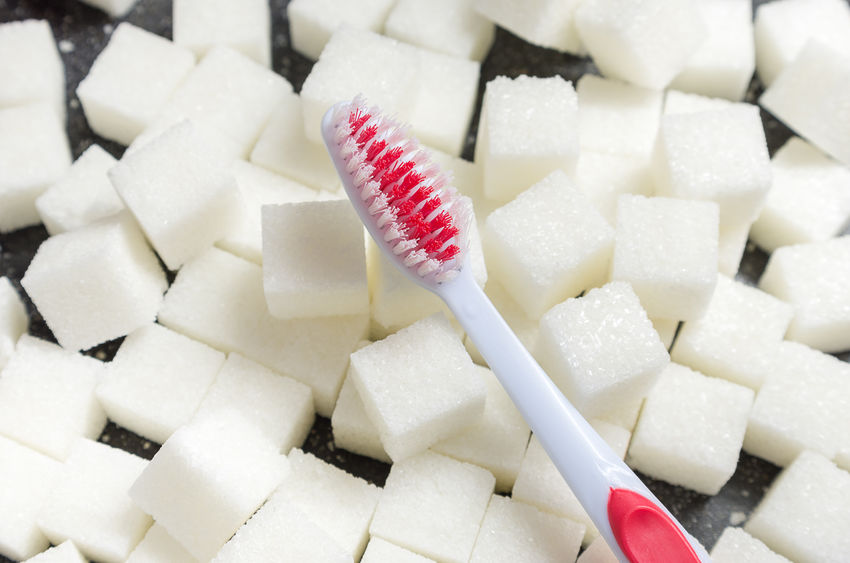
Let’s get granular about cavities. We all know what cavities are, right? Tooth decay that creates permanently damaged areas in the hard surfaces of the teeth that become tiny holes. But the more we actually know about cavities, the better job we can do at preventing them.
Did you know that cavities are one of the world’s most common health problems? According to the World Dental Federation, untreated tooth decay is an issue affecting nearly half of the world’s population. Cavities are most prevalent in children, teenagers, and older adults, but anyone with teeth is at risk of developing tooth decay.
Simply put, sugary foods cause tooth decay. So when bits of food and drink like bread, fruit, candy, milk, soda, and the like stay in contact with your teeth, they cause decay. The bacteria in your mouth turns these foods into acids, then the bacteria, acids, and food debris combine with your saliva to form plaque. This plaque clings to the surfaces of your teeth, dissolving the enamel and causing cavities to form.
Signs and symptoms of cavities often depend on where they are in your mouth and how large they are. You may not even have any symptoms at first, if the cavity is small enough, but as it gets larger, you may experience some of the following:
Everyone with teeth is susceptible to tooth decay and cavities, so it’s important to do what you can to minimize the chances of getting them with preventative care. Being aware and conscientious of habits that can affect your overall oral health can go a long way. So here are a few things that can contribute to the formation of cavities.
If you do get cavities, you’ll need to work with your Chattanooga family dentist to figure out best treatment options and preventative measures to take as you move forward. Depending on the size and location of your cavity, your dentist may suggest a basic filling made of silver alloy, porcelain, gold, or composite resin. If the tooth decay is more severe, you may be looking at a root canal and/or crown. The best way to avoid getting cavities is to brush your teeth at least twice daily with fluoride toothpaste, floss regularly, eat a healthy diet without too much intermittent snacking, and of course, see your Tedford Family Dentist regularly for cleanings and exams. Our team will work with you to help prevent tooth decay and keep you smiling!
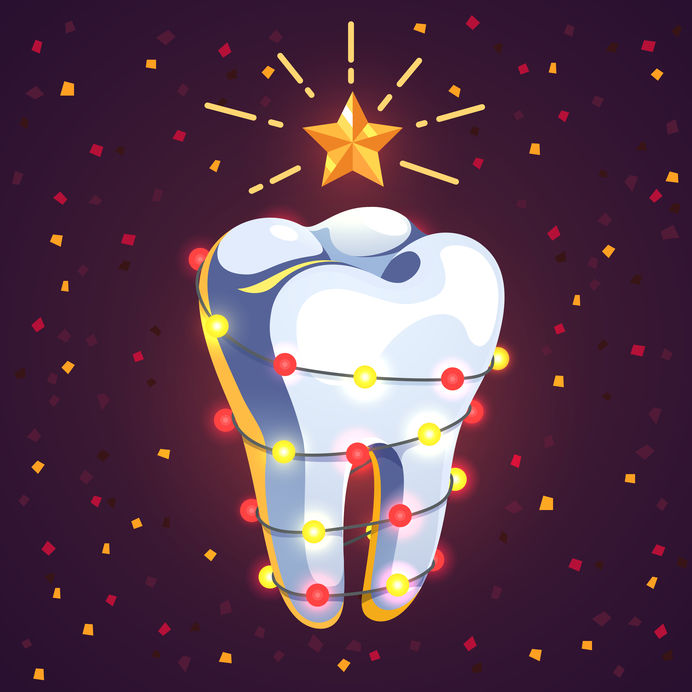
There’s a time and place for practical gifts, and our team at Tedford Family Dentistry thinks gifts that help promote better oral health are always a great way to go. So this year as you’re doing your holiday shopping, consider some of these top items from our holiday gift guide for better oral health!
It’s a little luxurious, and a little boujee, but also such a nice thing to have– the electric toothbrush. Help that loved one in your life take their brushing up a notch. With cool options like Quip or Sonicare, you could even gift your loved one an ongoing subscription for top-of-the-line dental supplies.
If you’re looking for a great stocking stuffer for your kids or significant other, consider sugar free gum to accompany all the chocolate candy this year. Chewing gum can actually have a positive impact on your dental health by stimulating your mouth’s production of saliva. Steer clear of sugary gums though, as these can promote tooth decay.
Let’s be real. Most of us don’t take flossing as seriously as we should, and could use a little extra motivation in this important department of dental hygiene. So consider giving the give of a water flosser. Water flossers use water pressure to help clean between the teeth. A lot of people prefer this method to traditional dental floss, finding it more effective and more comfortable. Waterpik® is a great brand for water flossers you can check out.
There’s nothing like the confidence boost you get from loving your own smile. So maybe this holiday season you give the gift of professional teeth whitening treatments to a loved one, or better yet– treat yourself this year! Our team at Tedford can help you achieve your best smile with our in-office whitening services.
Lots of us travel during the holidays, and it’s nice to be set up to take great care of your teeth while you’re on the go. Another great gift idea is a travel dental kit put together by hand. Select a great travel toiletry bag, and fill it with travel size toothpaste, floss, mouthwash, mints, and anything else you think fits the bill. Bonus: this person will think of you with every trip taken!
So while you’re doing your holiday shopping this year, think about how you can give the gift of a healthier smile to the ones you love the most. We hope our holiday gift guide serves as inspiration for your most practical yet loveable gifts for better oral health in the upcoming year! Cheers and happy holidays, from all of us at Tedford!

The costume-clad, candy-hunting holiday we celebrate now as Halloween was derived from an ancient Celtic festival called Samhain during which people would light bonfires, dress in costumes to ward off ghosts when the veil between the living and the dead was thought to be thinnest.
Over time, the name and customs associated with the holiday have evolved to include jack-o-lantern carving, scary movie viewing, and trick or treating around neighborhoods. But even though Halloween might be a dream for your children (who doesn’t love dressing up and eating tons of candy?), it has the potential to become your Chattanooga pediatric dentist’s nightmare. So our team at Tedford Family Dentistry has compiled a list of tips to help you keep your child’s dental health in check through the sugariest holiday on the calendar.
Know which candies are least harmful to your teeth. Dark chocolate for example is one of the better options, as it tends to have less added sugar. Furthermore, the antioxidants found in dark chocolate have been shown to fight periodontal disease. Who knew? (Well, we did, and now you do.)
Take it easy on the taffies and ultra sticky candies like Milk Duds. Sticky caramels and taffy tend to stick to the teeth, allowing the sugar therein to eat away at tooth enamel. These treats are also potentially dangerous for children with caps on their teeth, as the sticky candies can even pull off caps or crowns.
Enjoy candy at mealtimes. It’s a good idea to let your kids eat their candy and treats at mealtimes, because the saliva produced in the mouth while eating actually helps to wash away otherwise lingering sugars and bacteria.
Eat dinner before trick or treating! Trick or treat with full bellies so your kids won’t be tempted to candy binge. This will also give you time to get home and check over their stashes to ensure safety of the treats. Plus, counting and sorting the goods is half the fun!
Instate a candy budget. Don’t let your kids go crazy on the candy, but teach them moderation. Not only will the trick or treating loot last longer than a night or two, but also limiting your kids’ intake of sugar will be best for them all around. Their teeth (and tummies) will definitely thank you.
Drink lots of water. Not only does drinking water have fluoride in it, which helps preserve tooth enamel, but also the swishing water inside the mouth helps wash away bits of food and treats, as well as sugar and bacteria that can cause cavities.
Don’t forget to brush and floss. Good oral hygiene is imperative always, but especially when your child has consumed sugary treats. Leaving candy residue on teeth and gums is an invitation to decay. Brush, brush, and brush again.
Consider non-candy treats. Broaden your Halloween horizons by giving your kids something other than candy on this holiday. We’re talking glow sticks, coloring books, temporary tattoos, and maybe even a new toothbrush!
Don’t skip your cleanings! It’s really important to maintain your child’s dental cleaning and exam schedule to ensure issues are caught early– plus preventative care is always less painful and less expensive than fillings, root canals, and crowns.
Regardless of how you and yours choose to celebrate Halloween this year, we hope you have a safe and fun time. Our team at Tedford Family Dentistry wishes you the spookiest Halloween ever, and we hope you’ll take our dental tips to heart. Can’t wait to see your boo-tiful smiles soon!

When it comes to protecting your child’s teeth, the more you know, the better a job you’ll be able to do. Especially for first time parents, your knowledge about early dentistry and baby teeth may be limited, because this is a whole new adventure for you. So, here are a few things perhaps you didn’t know about baby teeth, and how you can best care for your child when it comes to oral health.
Your baby’s first tooth is a big childhood milestone. You’ll be saying ‘so long’ to that gummy grin, and you’ll likely deal with a little fussing as your baby’s teeth begin to erupt and grow in. This process can come with a little pain and irritability for your baby, as well as a low grade fever on occasion. That said, a lot more changes during this stage than the way your baby’s smile looks.
Baby teeth, also called primary teeth, serve a major purpose for your child. Those baby teeth prepare the mouth for the permanent teeth that will carry your child through adulthood. These primary teeth serve the obvious purposes– chewing and eating, but they also aid your child in speech functions, while also serving as placeholders for the permanent teeth that will eventually begin to replace them.
Keeping these baby teeth healthy as your child grows and matures will help ensure a healthier dental path for them as they approach adulthood. Proper dental hygiene and preventative dental care work in tandem to help keep your child’s teeth and mouth healthy and prevent dental problems down the road that can be both painful and costly.

Our team at Tedford Family Dentistry in Chattanooga would love to help you and your child take exceptional care of those precious primary teeth. If you need to schedule an appointment for your child, contact us today!
It’s likely that your parents have taught you about the benefits of good oral hygiene since early childhood. They taught you to brush your teeth, floss daily, avoid excessive sugary food and drink, and the like. But the benefits of taking care of your teeth and gums go well beyond appearance and fresh breath. Let’s explore some of the benefits of taking exceptional care of your mouth with healthy habits!

First of all, it’s a good idea to know and understand what it really means to practice good oral hygiene. It all starts with taking great care of your teeth and gums at home.
Taking great care of your teeth and gums serves you in so many ways. Practicing good oral hygiene can also add to an improved sense of self esteem and self confidence, and all around quality of life. So take care of those pearly whites, and if you need dental assistance, know the team at Tedford Family Dentistry is here for you anytime! Feel free to reach out with any need.
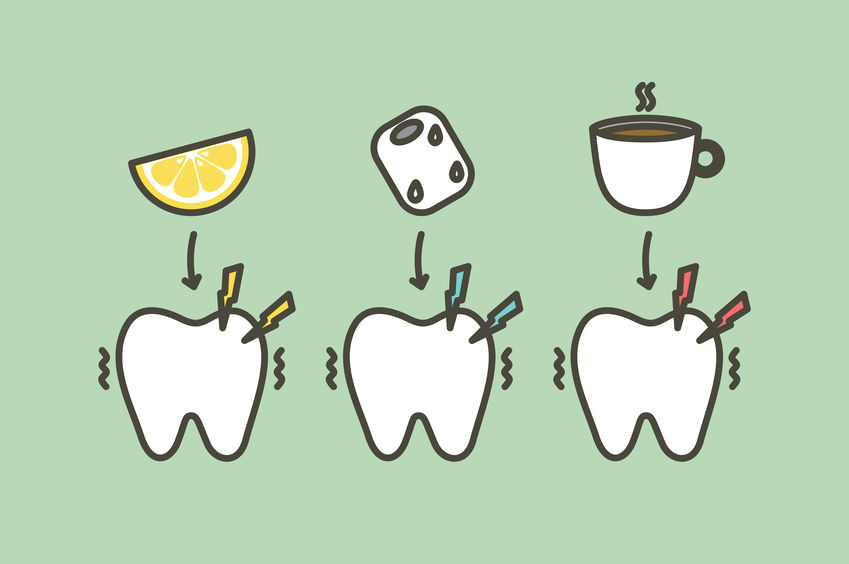
Odds are that at one point or another you’ve experienced pain or discomfort after taking a bite of fresh-from-the-freezer ice cream or a heaping spoonful of super hot soup. This sensation is linked to tooth sensitivity. Although pain caused by hot or cold food and drink can sometimes be a sign of a dental problem, your Chattanooga family dentist will also tell you it could just be the result of having sensitive teeth.
Tooth sensitivity is also known as “dentin hypersensitivity,” and can be a temporary issue or a chronic problem depending on the patient and circumstances. You may notice your teeth are sensitive to specific stimuli, like extreme temperatures. Sometimes these symptoms come and go or range in severity from mild to intense. Common triggers for tooth sensitivity include:
Some dental patients experience tooth sensitivity because of a naturally thinner layer of enamel than is common. The enamel is the outermost layer of the tooth that serves to protect it from outside elements that cause decay. Sometimes other factors cause the enamel to wear and break down over time. Such factors include:

Other factors such as gum recession, tooth decay, broken or chipped teeth, and worn down, damaged fillings or crowns can also result in exposed dentin, causing tooth sensitivity. If this is the case, you’ll likely only feel sensitivity in that one area of the mouth as opposed to a general feeling of sensitivity. Sometimes dental work can leave the teeth feeling sensitive for a few days post procedures, and whitening efforts can have a similar effect. That said, in cases such as these, symptoms tend to reside quickly.
If you are experiencing tooth sensitivity for the first time, you should make an appointment with your Chattanooga family dentist. When you have a routine dental cleaning and/or exam, your dentist can check for potential issues that could be causing your tooth pain. Cavities, recessed gums, or loose fillings could be the culprit. Regardless of the cause, your dentist can help you find relief for the sensitivity you’re experiencing via several different treatment options.
Your Chattanooga family dentist will assess your dental sensitivity, and make treatment suggestions based on what the root cause may be. For example, if you’re suffering from the symptoms of GERD, acid reducers can help treat the symptoms of that ailment, while also helping to safeguard your tooth enamel in the process. If receding gums may be the cause, your dentist may suggest you use a different type of toothbrush or methods of oral hygiene, or if severe enough, may suggest a gum graft course of treatment. Treatment may be as simple as switching the type of toothpaste or mouthwash you’re using.
No matter what the cause of your tooth sensitivity, the staff at Tedford Family Dentistry wants to help you resolve it. Contact our today to schedule an appointment. Relief is achievable, and we want to help you find it!
COVID-19 has changed our daily lives in so many ways, and social distancing or sheltering in place means we don’t have the luxury of rushing out to see our Chattanooga dentist at the first sign of a dental problem. That said, we’ve rounded up some home remedies for toothaches and other tips that might help you avoid dental disasters during these difficult times.
Not having ready access to a dentist means you should definitely pay extra attention to your regular dental hygiene habits. Be sure to make brushing your teeth and flossing a priority. It shouldn’t be an issue since we’re all spending so much extra time at home, right?
Another important thing is to make sure you’re wearing your night guard regularly if you have one. Many of us grind our teeth at night while sleeping, and suffer from bruxism, which can cause a lot of damage to otherwise healthy teeth. These issues are exacerbated in times of stress, so to all our night guard wearers, approach it religiously during these times.
All this said, if you find yourself experiencing tooth aches while you can’t be seen by a dentist, here are a few things you can try to help ease the pain until you can get the dental care you need.
This might seem like a basic step, but you’d be surprised how effective a salt water rinse can be in combating dental pain. Sometimes food particles or debris can become lodged between your teeth and cause minor infections that can be painful. As salt water is a natural disinfectant, sometimes a salt water rinse can help heal oral wounds as well as decrease inflammation in the mouth that can be the source of your discomfort. Try mixing about a half teaspoon of salt into a small glass of warm water, then swish it in your mouth a few times just like you would use a mouthwash. Spit, and repeat. Try this a few times a day to see if you can get relief from your tooth pain.
Hydrogen peroxide, like salt water, can help to relieve pain and inflammation caused by dental issues. It also kills bacteria and can help heal irritated or bleeding gums. Make sure you dilute the peroxide before using as an oral rinse. Cut the peroxide half with water, and use it as a mouthwash. Do not swallow.
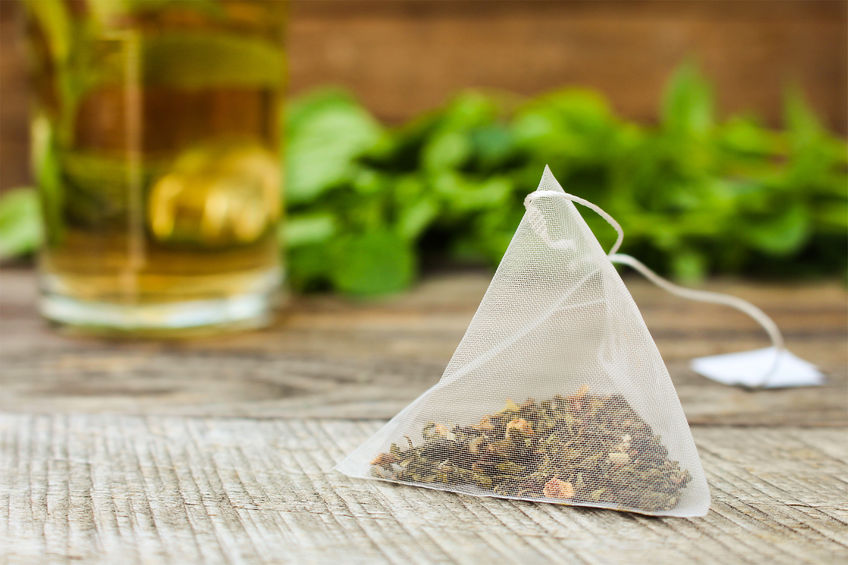
Sometimes peppermint tea bags can serve as a quick home remedy for sensitive gums. The peppermint acts almost as a numbing agent to the affected area, and offers some relief in some cases. Allow the tea bag to cool down some before applying, but it should still be somewhat warm. Peppermint actually has many health benefits, acting as a remedy for many ailments. It also kills germs in the mouth. Learn more about the benefits of peppermint through a WebMD write up here.
A cold compress is another quick home remedy for toothaches and other oral pain, especially in instances that involve trauma to the tooth. The cold compress causes the blood vessels in the area to constrict, which consequently makes the pain less severe. Cold also helps to reduce inflammation and swelling associated with the tooth issue.
Clove oil contains eugenol, which happens to be a natural antiseptic. Because it reduces inflammation and numbs pain, clove has been used throughout history to treat toothaches. Apply a small amount of clove oil to the affected area with a cotton ball or q-tip a few times daily. You can also add a drop or two of clove oil to water to make a rinse.
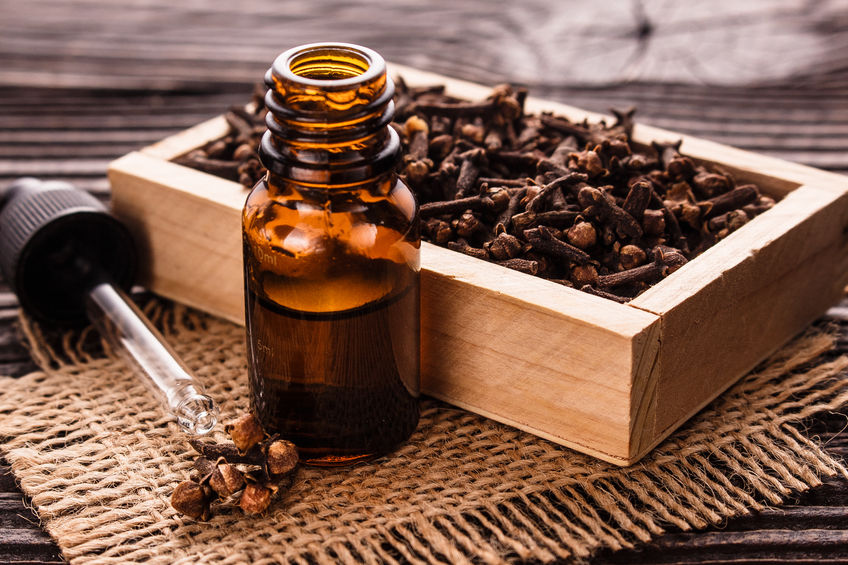
We hope these home remedies for toothaches help get you through any minor dental issues you’re experiencing while COVID-19 has you stuck at home. Many toothaches will require dental attention, but in the meantime try these methods for reducing pain. That said if your toothache is severe enough or does not subside, you will need to seek dental care.
You should also contact us if you experience fever, swelling that does not subside, pain when you bite or chew, red or visually inflamed gums, or trouble swallowing. Our team at Tedford Family Dentistry wishes health and safety for you and yours during these trying times.